Which Japanese conveyor belt sushi chain has the best negitoro sushi?【Taste test】
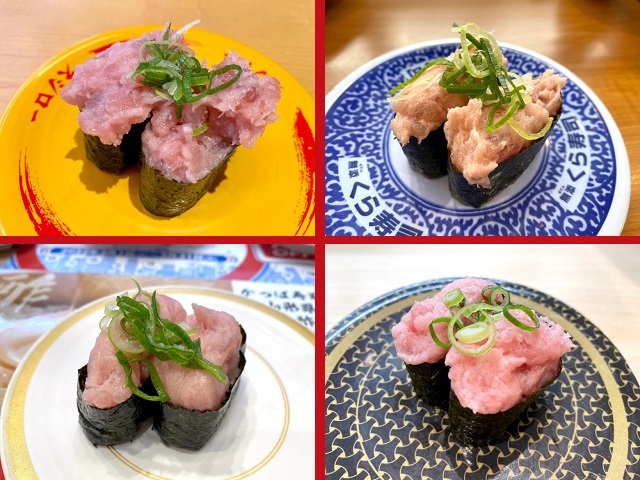
”They’re all pretty good!” was NOT our taste-tester’s verdict this time.
If you’ve been following our series “Which Japanese conveyor belt sushi chain has the best [whatever our taste-tester P.K. Sanjun wants to eat that day] sushi?”, you know by now that even when one restaurant is the best, that doesn’t mean the others are bad. This is Japan, after all. Restaurants that serve bad-tasting sushi across the board don’t last very long, let alone become chains, because it’s never a very long walk to a restaurant that does serve good sushi.
So when P.K. makes the rounds to compare a single type of sushi at Kappa Sushi, Kura Sushi, Sushiro, and Hama Sushi on a single day, he usually finds they’re all pretty good in their own ways. Today, though, things are different.
Today P.K. is taste-testing negitoro, minced fatty tuna with green onion, and he’s got some strong opinions about which chain’s are worth ordering and which he’d say “nope” to a second plate of. Each restaurant prices its negitoro exactly the same, at 110 yen (US$0.89) for two pieces, so today’s contest is all about the eating experience, with no economic advantages for any contender over another.
▼ Clockwise from top left: Kappa Sushi, Kura Sushi, Sushiro, and Hama Sushi, all of which P.K. visited on the same day within a span of three hours for this taste test.
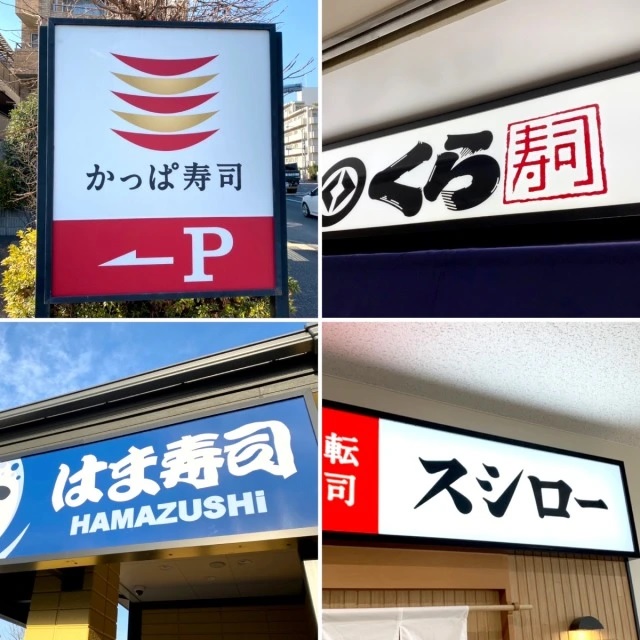
A few linguistics appetizers before we start: negitoro (meaning “green onion and fatty tuna”) is also sometimes called negimaguro (“green onion tuna”) or magurotataki (“minced tuna”). Also, negitoro/negimaguro/magurotataki sushi is usually served gunkan (“battleship”) style, in squat, oval pieces with a seaweed wrapping.
And now, let’s turn things over to P.K.!
● Kappa Sushi Negitoro
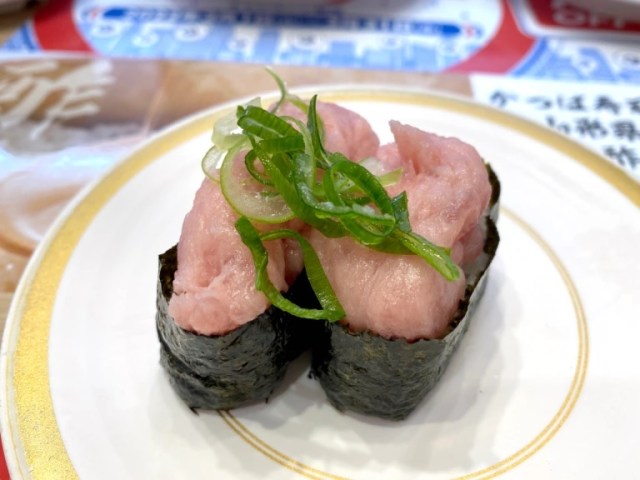
“To be blunt, this doesn’t feel like I’m eating tuna at all. I mean, I know it’s tuna, but texture-wise it’s an oily paste. If you’re into that sort of thing, you might say ‘It’s smooth and rich,’ but for me, personally, it felt like something that got squeezed out of a tube.”
● Kura Sushi Negimaguro
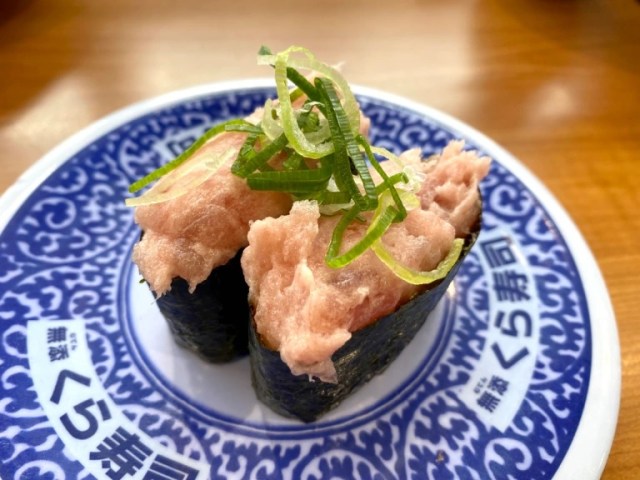
“It pains me to say it, but this isn’t much better than Kappa Sushi’s. Yeah, the fat is flavorful, which is usually a good thing, but it feels unnaturally rich. If I was still a constantly hungry little kid, I could probably devour a bunch of this stuff, but as a regular-appetite adult I don’t think I could handle a second plate. Oh, and this one’s texture also felt more like paste than fish.”
● Sushiro Gunkan Negimaguro
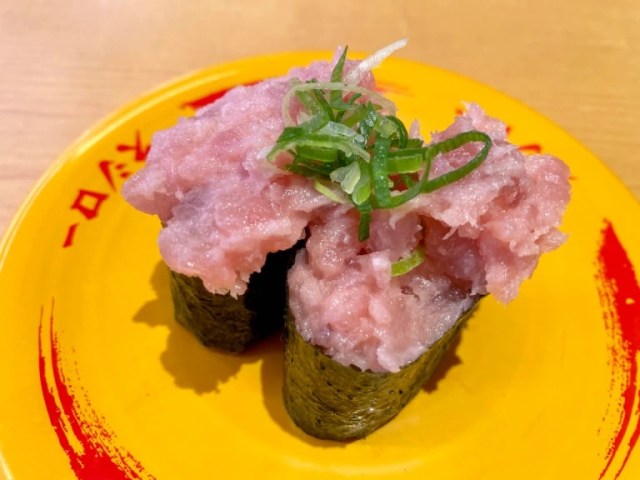
“Now this feels like proper minced tuna. It’s got that great mix of lean tuna umami and fatty tuna umami, and just the right amount of little firm pieces of fish for a great texture. Sushiro always puts their pride on the line in offering top-quality tuna for a conveyor belt sushi restaurant, and they’ve done that again here.”
● Hama Sushi Magurotataki Gunkan
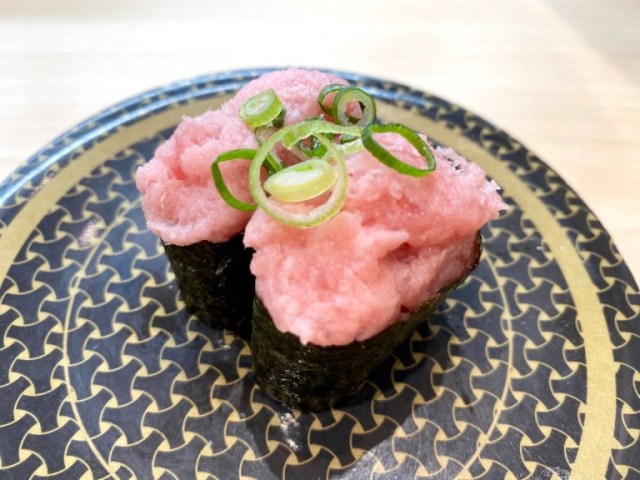
“There’s no pastiness here, unlike the Kappa and Kura Sushi negitoro. Like Sushiro, Hama Sushi’s negitoro lets you enjoy both the fatty and lean flavors of the tuna. I especially liked the seaweed, which had a great aroma, and the moment when you bite through it and get to the tuna inside was wonderfully delicious.”
While P.K. slips into his food coma to quietly digest, we’ll slide into the evaluation and note that he’s particularly particular about the texture of his negitoro. If you, like P.K., aren’t into liquidy smooth negitoro, you might want to keep your eye out for restaurants that call theirs “magurotataki.” While it’s not a hard-and-fast rule, marketing-wise “magurotataki” is often used to refer to negitoro with slightly larger chunks of fish in the mix, as was the case with Hama Sushi’s Magurotataki Gunkan.
Oh, hey, it looks like P.K. is waking up, so let’s ask him which of the four was his favorite, though that’s really down to Sushiro vs. Hama Sushi.
“If I had to pick just one, I’d go with Sushiro. But Hama Sushi’s is really good too, so I’ve got no problem saying ‘Sushiro and Hama Sushi both have good negitoro.’”
Of course, there’s more than just negitoro on the menu at these four chains, so P.K. isn’t saying you should never eat at Kappa or Kura, especially if you’re also planning to eat some yellowtail, salmon, or ikura too.
Photos ©SoraNews24
● Want to hear about SoraNews24’s latest articles as soon as they’re published? Follow us on Facebook and Twitter!
Credit:

0 comments:
Post a Comment